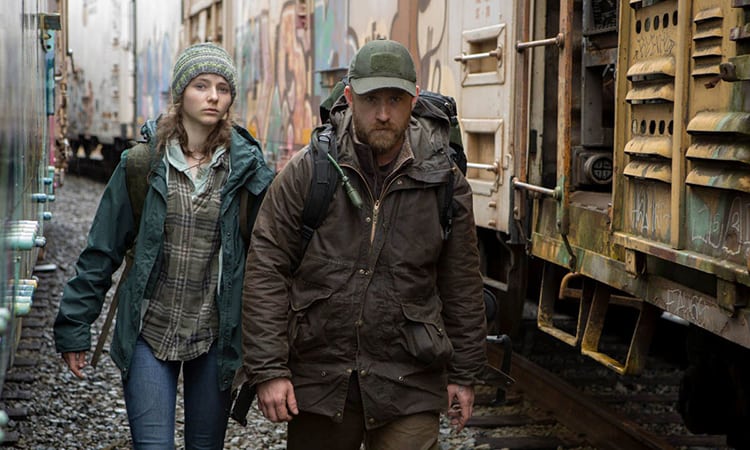There’s a subgenre of film in which damaged fathers raise their kids in the wilderness due to problems they have with modern society—the “wilderdad” subgenre, if you will—and before “Leave No Trace” hit the scene, “Captain Fantastic” and “The Glass Castle” paved the way. Both of those movies were promising but ultimately disappointing, partly because they opted for feel-good encouragement after hours of spouting monologues about the world’s flaws. In other words: they took the easy way in and the easy way out.
“Leave No Trace” is different kind of wilderdad movie. It was written and directed by Debra Granik, the mind behind the bleak indie classic “Winter’s Bone”. It’s a quiet, restrained film with very little dialogue. A character actor and a young newcomer portray its two primary characters. Its screenings at festivals left critics in awe. All signs point to “Leave No Trace” being the first worthy entry in the wilderdad subgenre.
It doesn’t do a lot of signposting itself, thankfully. “Captain Fantastic” and “The Glass Castle” were quite obvious affairs that telegraphed their thematic arcs: make the viewers feel bad about society and then give them hope for humanity. “Leave No Trace” is not so maudlin. Its tone is as icy and unforgiving as the Oregon forests that Will and his daughter Tom call home.
Will is a veteran suffering from debilitating PTSD, which the movie is coy to suggest and never keen to reveal outright. The reason behind Tom’s devotion to her father’s lifestyle—and its steady erosion—is equally discreet. This is a film of quick looks and muted emotions, one that trusts its audience to fill in the blanks of trauma by hinting at its aftermath.
The problem is, there may be too many blanks. “Leave No Trace” isn’t a narrative-driven film, as its situations and structure are just as loose and disconnected as its vagabond family. It doesn’t engage in consistent visual storytelling—the cinematography is beautiful in its silent naturalism, but it doesn’t augment the movie’s themes in any significant way. It doesn’t come across as a character study, because its subtle dips into character backgrounds and motivations do more to foster moods than bare souls.
What’s left is a thin sketch of a more engaging tale. While some might view Granik’s decision to let her movie meander with its protagonists as an understated mission in thought-provocation, others will find it boring—and the latter group wouldn’t be at fault. I found myself checking my watch while I waited for another small character moment.
Naturally, “Leave No Trace” depends heavily on the performances of Ben Foster and Thomasin McKenzie, who enthrall far more than the overall film does. Their performances work as profound parallels: McKenzie gradually sharpens the softness of childhood into a tool of survival; Foster retreats into the hardness of his life only to find unwanted vulnerability. They are both outstanding in their performative transformations, especially during a culminating interaction at the end of the film.
But that’s the only moment in which “Leave No Trace” left a lasting impression. Unlike the preachy sentimentality of wilderdads past, this movie erases the tracks it left in my mind quickly and silently.
★★★ (3/5)




